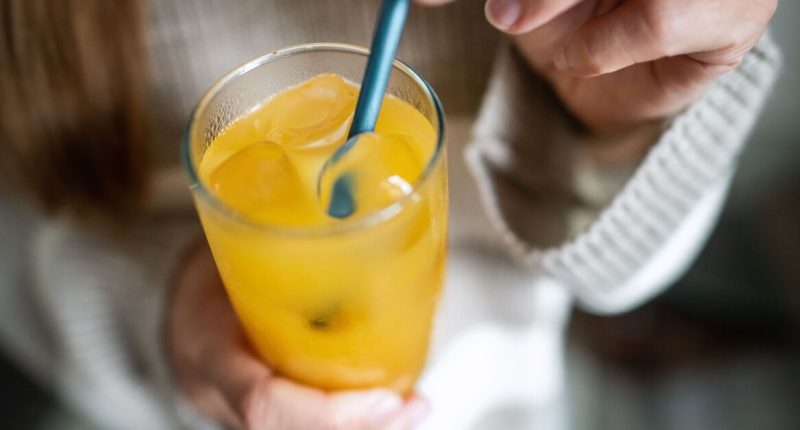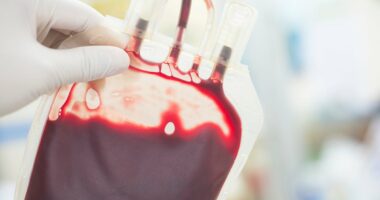Share this @internewscast.com
Diagnosed with Type 1 diabetes in 2006, I became accustomed to a stringent management of my diet, meticulously tracking that I didn’t exceed 10g of sugar with any meal. The constraints were such that fruits, chocolate, biscuits, yoghurts, and even bread were banished from my plate for nearly 12 months. Fortunately, advancements in diabetic care, including insulin pumps, continuous glucose monitors (CGM), and improved insulins, have since afforded me a more lenient approach to eating.
However, I remain cautious, deliberately sidestepping certain foods to avoid the effects of soaring blood sugar levels, known as hyperglycaemia. Sweets can be a rapid remedy when grappling with the tremors of plummeting blood sugars—a condition termed hypoglycaemia.
Ingesting sugar-laden foods is a sure-fire trigger for a spike in my blood glucose readings, but it’s the sugary beverages that yield an almost immediate impact, coursing swiftly into the bloodstream and elevating sugar levels, reports SurreyLive.
Therefore, I tend to avoid full-sugar fizzy drinks, decadent hot chocolates, and various alcoholic drinks, with even the “healthy” options approached with caution.
Numerous drinks often labelled as “healthy” are guilty of packing in hefty doses of carbs and sugars, resulting in potential blood sugar spikes if the right insulin dose isn’t administered.
Highlighted below are three ‘healthy’ drinks laden with sugar that I generally steer clear of:
Smoothies
Frequently touted as “healthy” options, smoothies can indeed complement a balanced diet. They’re typically filled with fruits, vegetables, and additional components such as yoghurt and nuts, none of which are inherently unhealthy.
Smoothies also have the potential to increase your intake of fruits, veggies, and fibre, aiding you in meeting your five-a-day.
Nonetheless, smoothie making involves the disruption of fruit cell walls through blending or juicing, releasing natural sugars. These liberated sugars become what’s termed “free sugars”—the kind of sugars detached from their original cells.
The reduction in fibre facilitates consuming larger quantities more easily, transforming a modest 250ml glass of smoothie into the equivalent of three or four glasses.
Not only do these free sugars inflict sharp rises in blood sugar, but they also contribute to dental problems, obesity risks, and heightened chances of heart conditions.
To mitigate consumption, it’s recommended to drink smoothies with a meal, to avoid excessive intake. Bear in mind as well, that smoothies and juices count as just one serving towards your five-a-day, irrespective of how much you consume.
Juices
Similar to smoothies, juices are a sure-fire way to send my blood sugars soaring and are often my first choice when I need to boost my blood sugar levels if they dip too low.
Juices may be packed with essential vitamins, but they’re missing fibre and are loaded with sugar that rapidly enters the bloodstream, causing a spike in blood sugar.
The allure of their delicious taste makes it all too easy to drink more juice than necessary, which not only spikes your blood sugar but can also lead to tooth decay and unwanted weight gain.
To put things into perspective, a 250ml bottle of Waitrose Good to Go Freshly Squeezed Orange Juice packs a whopping 24.5g of sugar, and a 250ml can of cola has 27g.
Even though the sugar in orange juice is naturally occurring from the fruit, it’s still classified as “free sugars”.
Oat milk
I must say I’m quite fond of plant-based milks. Many have a superior taste compared to cow’s milk and boast lower levels of saturated fats and cholesterol. Plus, some are even enriched with vital nutrients like calcium, vitamin D, and B12.
Oat milk is particularly scrumptious in a latte or a cuppa, but beware, it does contain sugar. Nutrisense reports that oat milk includes maltose, which has a glycemic index of 105. Owing to the starch content in oats, it also tops the chart for carbohydrate content among its plant milk peers.
Every individual with type 1 diabetes has unique management needs, but for me, any food or drink containing more than 8g of carbohydrates necessitates an insulin injection. For every eight grams of carbohydrate I intend to consume, I must administer one unit of insulin.
I recently sampled Oato Fresh Barista Whole Oat Milk Alternative. While it’s delightful when frothed and blended into a cup of decaf coffee, it contains 6.5g of carbohydrate and 3.8g of sugar per 100ml.
I typically add around 150ml of milk to my coffee, which equates to nearly 10g of carbohydrate per serving and 5.7g of sugar.
Even unsweetened oat milk is laden with natural sugars and carbohydrates which is why I avoid it.
Nutrisense explains that enzymes are added to oat milks to break down the oat starch, converting complex carbohydrates into simple ones.
A surprising number of plant-based milks contain substantial amounts of sugar and carbohydrates, even those without added sugar.
It’s important to remember that everyone’s body reacts differently to various foods and ingredients.















